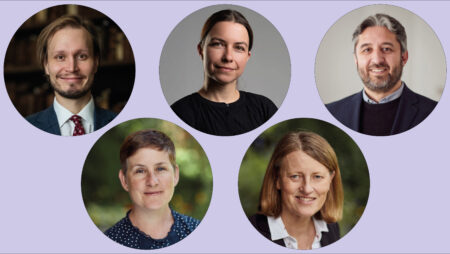About
Adam Mahdi is the Director of Graduate Studies and a Departmental Research Lecturer at the Oxford Internet Institute. His research interest involves application of statistical and machine learning methods in social sciences with a focus on digital health. He leads a UKRI-funded OxCOVID19 Project. In addition to his work at the OII, he is a fellow at Wolfson College and Stipendiary Lecturer at Lady Margaret Hall.
Prior to joining Oxford Internet Institute in 2021, Adam was a Research Fellow at the Institute of Biomedical Engineering, Department of Engineering Science, University of Oxford; Visiting Fellow at the Isaac Newton Institute for Mathematical Sciences, University of Cambridge; and Research Assistant Professor at North Carolina State University.
Adam’s research focuses on application of data science approaches in social science with a particular interest in digital health. In 2020 Adam founded the OxCOVID19 Project (UKRI-funded) aimed at increasing our understanding of the COVID-19 pandemic and elaborate possible strategies to reduce the impact on the society through the combined power of statistical and machine learning techniques. He led a group of 15 researchers and academics in assembling a large, publicly available multimodal database, consisting of information related to the efficacy of public health policy interventions. He has established numerous collaborations within the UK and abroad including with the Met Office, European Values Study and World Value Survey. Within digital health, Adam’s work focused on opportunistic methods in big data analytics, aiming to take advantage of routinely collected NHS data to obtain actionable insights into patients’ health beyond the primary reason of admission. His recent work focuses on application of machine learning for visual data analytics. This work aims at developing quantitative methods for multimodal data including images, time series and text sources, which create an opportunity for social scientists to incorporate new tasks into their analysis.
Adam holds a PhD and MSc in applied mathematics from the Universitat Autònoma de Barcelona. He completed the Oxford Biodesign Programme (University of Oxford) focusing on the Biodesign process of MedTech innovation, with a particular focus on digital healthcare.
TEACHING AT THE OII
Adam teaches Applied Analytical Statistics, one of the foundation papers in the MSc Programme in Social Data Science, which focuses on the tools and techniques used by social scientists to understand, describe and analyse quantitative data. He also teaches Fairness, Accountability, and Transparency in Machine Learning, aiming to equip students with the technical and conceptual tools to be able to engage deeply and critically with machine learning.
Research Interests
Digital health, machine learning, healthcare policy, social and computational data science






















